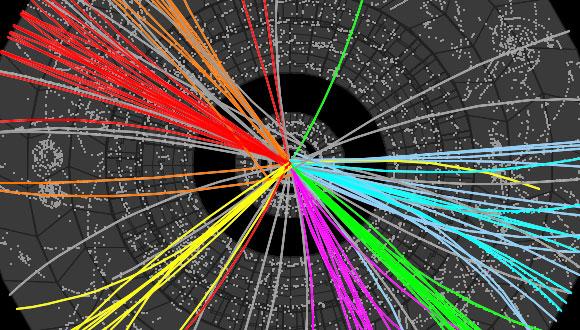Particle Physics Seminar: Relativistic Laser Interaction with Wavelength-Scale Objects and Undepleted Direct Laser Acceleration
Michal Elkind and Talia Meir, TAU
Zoom: https://tau-ac-il.zoom.us/j/84772186370?pwd=RUErYy9QMzltMXlNcTdNNHl2bzZvdz09
Abstract:
Chirped pulse amplification technology introduced the field of relativistic optics. Under the action of the laser field irradiated targets are violently ionized and the electrons gain energies comparable to their rest mass. The collective dynamics in the formed plasma results in intense bursts of radiation: high energy electrons, ions, positrons and x-rays. We will present two investigations which aim to unveil features of this interaction. Different experiments over the past decade showed that the interaction of relativistic pulses with targets that have geometrical features comparable to the laser wavelength, result in increased coupling between the laser field and the electrons. Several different models were offered to explain this phenomenon, however, unveiling the details of these interactions through parametric studies was so-far hindered by stringent requirements on laser contrast, and sophisticated target fabrication capabilities. We measured, for the first time, ejection of MeV electrons from the interaction of relativistic laser pulses with a single micrometric formation. The measure angular distribution of the electrons revealed that the increased energy coupling results from a geometrical effect, in which the electrons interact with the laser field in vacuum over a long propagation distance. We will also show a study on the role of ionization in Direct Laser Acceleration (DLA) of electrons. In DLA, the ponderomotive force of the leading part of the laser pulse expels electrons and forms a slowly evolving quasi-stationary ion channel. The laser electric field transfers energy into transverse (betatron) oscillations which are redirected by the magnetic field of the laser into the longitudinal direction. This method generates multi-MeV electron beams with unprecedented conversion efficiency. We will show experimental measurements, backed by a numerical study which establish that efficient acceleration require a target of high enough atomic level, so that electrons are injected from a specific range of ionization levels into the DLA channel.
Seminar Organizers: Dr. Michael Geller & Dr. Adi Ashkanzi


